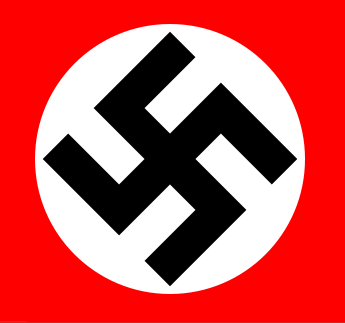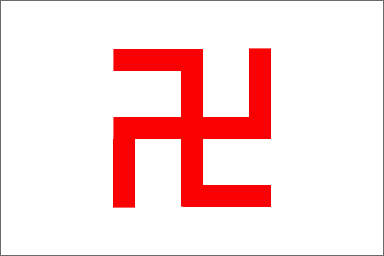really? I would say thee most notorious, I mean how many people were killed due to Alexander and his army? what about Stalin?Atmos Duality said:To be fair, the Nazis only committed one of the most heinous crimes in recorded human history.
Black Ops Swastika Emblems Will Earn Xbox Live Ban
- Thread starter Tom Goldman
- Start date
IF it's going to get someone banned, why is it in the game? IT wasn't part of some publicity stunt, but I have to saw that is a bit overboard. If being offended over XBOX LIVE is an issue then why are you still playing, people on xbl are going to offend
purely out of interest, are they applying the same logic to the Hammer and Sickle??? if nothing else stalin had a higher k/d ratio (and to anyone who says that stalin did not target a single racial group {ala hitler + the Jews} then ask your nearest cossack!).
Talking about gives it significance. So it's basically Microsoft's fault for giving it too much attention. People don't care and they shouldn't. I hate Nazi's as much as the next guy but swastikas are not something you should be banned for. You should not allow no corporation to control you like that! Fuck them all. I suppose that every owner of Black Ops makes a swastika emblem.
And how are swastikas that bad when they were in most of the CoD games? Hypocrites...
And how are swastikas that bad when they were in most of the CoD games? Hypocrites...
Please explain how either of those events downplays the murder of millions.mad825 said:really? I would say thee most notorious, I mean how many people were killed due to Alexander and his army? what about Stalin?
And please don't try to say "they killed more", because that changes absolutely nothing.
Not sure it would take that long. Closely following the penis, though, are the pictures of 2 rabbits going at it like... rabbits. Seen it many a time so far.subject_87 said:...Now how about a ban (or other punishment) on the countless people with a penis as their icon? (I swear, if you drink a shot every time you see that, you'll be dead of liver failure within 10 minutes.)
I like my little fuzzball thing with a chainsaw for an arm!
...but, wait, hold on a second, the Nazi swastika is different from a Buddhist swastika 
For one thing, a buddhist version isn't set diagonally, and it's also reversed in comparison to the Nazi version.


See? the two are actually quite different symbols!
...I hope I won't get banned for posting a swastika on the forums considering the context... XD
For one thing, a buddhist version isn't set diagonally, and it's also reversed in comparison to the Nazi version.


See? the two are actually quite different symbols!
...I hope I won't get banned for posting a swastika on the forums considering the context... XD
Hehe, thats what I thought of when I read this.RatRace123 said:Why'd they even give people the ability to create emblems?
If it's not swastikas then it'll just be dicks.
If not swastikas, what about phallic symbols? I'm pretty sure there are already plenty already.
If they're going to ban the 'crooked cross' for association with Nazi war crimes, might I suggest banning the + symbol for its association with Christian crusades? Or the crescent moon? Or triangles? Or perhaps it's safest just not to allow self expression at all - we wouldn't want to offend anyone now, would we?
EDIT: @Simalcrum - Huh, I can't believe I've never seen a direct side-by-side comparison before. Thanks for that, now I know the difference for sure.
EDIT: @Simalcrum - Huh, I can't believe I've never seen a direct side-by-side comparison before. Thanks for that, now I know the difference for sure.
The swastika symbol dates back to pre-historic times and has been used as a symbol with widely differing meanings in a number of widely differing cultures including the Greeks, Romans, Slavs, Germanic, Anglo-Saxons, Celts, Buddhist, Hindu, Christians, Chinese, Japanese, Native American, etc., etc., etc. Unfortunately, it is most closely associated with the Nazi Party.AugustFall said:I thought the Swastika was a backwards version of the Buddhist symbol. Is that not right?
As I've written in a similar thread
Symbols take on the meaning that they're associated with, that's their purpose
Microsoft can't prove your intentions, they're imtrinsically known
Better just to ban it all. Want a symbol for peace or buddhism or whatever the fuck else?
Use a symbol that wasn't used in a flag of a totalitarian, racist and murderous state.
Do none exist? (doubt it)
Make one.
Symbols take on the meaning that they're associated with, that's their purpose
Microsoft can't prove your intentions, they're imtrinsically known
Better just to ban it all. Want a symbol for peace or buddhism or whatever the fuck else?
Use a symbol that wasn't used in a flag of a totalitarian, racist and murderous state.
Do none exist? (doubt it)
Make one.
...what about those swastikas composed of dicks? As long as it has dicks in it, it's unbannable, right?
So a horse having his dick cut off with a chainsaw is ok but a swastika is banned.
Power tripping bastards.
Power tripping bastards.
Am I the only person who thought about crossing Hello Kitty with Rambo with a Cigar then? I'm disapointed I have to wait to Christmas to see it now. (if it's possible)RatRace123 said:Why'd they even give people the ability to create emblems?
If it's not swastikas then it'll just be dicks.
In all honesty though they have a right to remove and bad any content on their game but they shouldn't have to with something like this, I just find it kind of sad that they gave people a little freedom and thats how they decided to use it to make immature images that reflect the image of gamers as a whole more in favour of the people who chastise us.
Hopefully after a few bans people will get the message that this isn't really funny at all.
The thing that rubs me the wrong way about this is his tone. He seems to convey that people who associate the swastika with things other than Nazism are pretentious jackasses. That seems condescending and culture-centric to me.
For context, imagine yourself in Revolutionary France, where the Royalists roamed the countryside battling the Republicans, terrorizing and pillaging along the way. The Royalist emblem was a plain white flag, considered internationally as a symbol of surrender. Were you to wave a white flag in Britain, it would hold one (basically benign) meaning, whereas if you were to wave a white flag in France, it would hold an entirely different, politically-charged meaning. Is either interpretation of the symbol intrinsically less valid or appropriate than the other? I shouldn't think so: each has a meaning within its own contextual history, and the people who ascribe each meaning are doing so reasonably.
That said, I agree with the overall ruling here. In the above example, the issue that arises is born of appropriateness of audience. Pictures of an open autopsy subject would be considered reasonable for a textbook in an anatomy class but be considered horrifying for publication in a newspaper for general circulation. Similarly, a swastika as portrayed to a Western audience would conjure associations to Nazism to the vast majority of players, and only in South and Southeast Asia would that pattern change. I'm certainly not one for banning symbols that could potentially be seen as offensive to some people (I think Nintendo's '90s policy of not featuring crosses in their games to avoid associations with Christianity to be ridiculous), but when the majority of Westerners can look at a symbol and from that the first memory drawn forth is that of that culture's biggest villains and mass-murderers? Perhaps a bit of temperance is not uncalled-for.
For context, imagine yourself in Revolutionary France, where the Royalists roamed the countryside battling the Republicans, terrorizing and pillaging along the way. The Royalist emblem was a plain white flag, considered internationally as a symbol of surrender. Were you to wave a white flag in Britain, it would hold one (basically benign) meaning, whereas if you were to wave a white flag in France, it would hold an entirely different, politically-charged meaning. Is either interpretation of the symbol intrinsically less valid or appropriate than the other? I shouldn't think so: each has a meaning within its own contextual history, and the people who ascribe each meaning are doing so reasonably.
That said, I agree with the overall ruling here. In the above example, the issue that arises is born of appropriateness of audience. Pictures of an open autopsy subject would be considered reasonable for a textbook in an anatomy class but be considered horrifying for publication in a newspaper for general circulation. Similarly, a swastika as portrayed to a Western audience would conjure associations to Nazism to the vast majority of players, and only in South and Southeast Asia would that pattern change. I'm certainly not one for banning symbols that could potentially be seen as offensive to some people (I think Nintendo's '90s policy of not featuring crosses in their games to avoid associations with Christianity to be ridiculous), but when the majority of Westerners can look at a symbol and from that the first memory drawn forth is that of that culture's biggest villains and mass-murderers? Perhaps a bit of temperance is not uncalled-for.
Agreed. The Jewish Holocaust (a bit of a misnomer given that the Nazis were equally prone to sweeping up and shipping off to the camps members of any class of persons they found undesirable including gypsies and the mentally retarded) is certainly the most notorious of all genocides. But it certainly isn't the only one nor is it the one with the most victims (some conservative estimates place the number of African Holocaust victims in excess of 12 million).mad825 said:really? I would say thee most notorious, I mean how many people were killed due to Alexander and his army? what about Stalin?Atmos Duality said:To be fair, the Nazis only committed one of the most heinous crimes in recorded human history.
